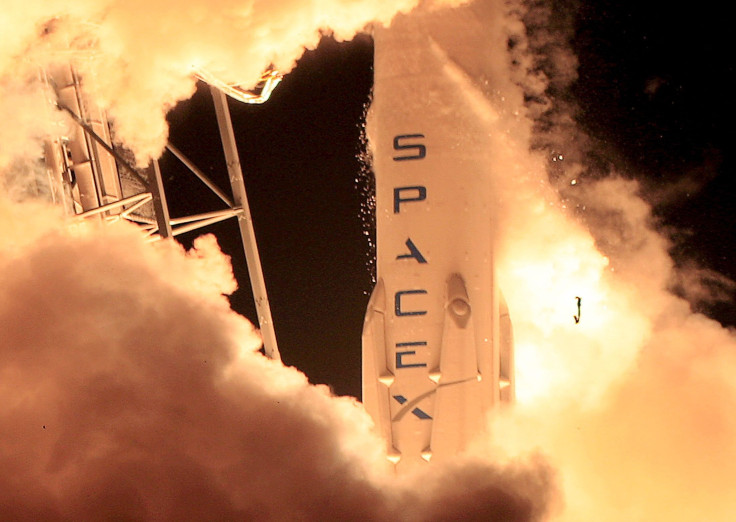SpaceX Could Be Big Winner As US Looks To End Reliance On Russian-Made Rocket Engines

An independent panel cautioned against the planned discontinuation of Russian-made rocket engines currently used by private U.S. defense contractor United Launch Alliance to fulfill Air Force missions. The safest route would be a deadline extension coupled with military launches using contractor SpaceX and ULA’s American-made Delta IV rockets while an alternative is under development, the panel said.
The acquisition panel, commissioned by the U.S. Air Force, concluded that Congress’ proposed 2019 deadline to discontinue the use of the Russian RD-180 rocket engine would be too risky and cost American taxpayers billions of dollars. The RD-180 engine is currently used by the Atlas V, ULA’s workhorse rocket for military launches. The panel made the recommendations last year but they were not publicly disclosed at the time. The Wall Street Journal published the findings Sunday.
The continued use of the RD-180 rocket engine is a contentious affair in Washington D.C., with U.S. Sen. John McCain, R-Ariz., a vocal opponent of the technology, claiming it makes the U.S. overly dependent on Russia and its mercurial president. “Vladimir Putin continues to hold our national security space launch capability in the palm of his hand through the Department’s continued dependence on Russian rocket engines. This is a national security threat, in addition to a moral outrage,” said McCain, chairman of the Senate Armed Services Committee, at a hearing this month on the state of the U.S. Air Force.
The panel recommended competition between SpaceX and ULA’s Delta IV rockets for future launches while an alternative to the RD-180 is developed. The extension would ensure better management of any setbacks or any other engineering issues that could arise. SpaceX and ULA are the only companies certified for military launches.
ULA, in partnership with Jeff Bezos’ Blue Origin, is currently developing the Vulcan rocket that could replace the Atlas V rocket. ULA would build the rocket while Blue Origin would manufacture the BE-4 rocket engine to replace the RD-180 engine. SpaceX uses only American-made parts in its Falcon 9 rocket.
ULA, a joint venture between Boeing and Lockheed Martin, was recently awarded an $882 million contract to launch satellites and provide management and engineering support for the U.S. Air Force.
With Russia’s annexation of Crimea, Congress in its fiscal 2014 budget mandated an end to the use of the RD-180 and for an American alternative to be created by 2019.
But the 2019 plan was deemed too risky and expensive by the independent panel. To develop, test and modify the launch pad for a new rocket could cost more than $3.5 billion. There’s uncertainty if ULA would provide the majority of the funding or if the Air Force would contribute to project.
Prior to 2015, ULA had a monopoly on the U.S. Department of Defense’s Evolved Expendable Launch Vehicle program. SpaceX filed a lawsuit to compete for EELV bids, claiming the bidding system was unfair and prevented competition. The private spaceflight company with contracts with NASA and commercial partners was certified for future EELV launches in May 2015.
The attempt to end the U.S. reliance on Russia for manned launches to the International Space Station led to the development of the Commercial Crew program by NASA that will see the return of manned launches by 2017.
© Copyright IBTimes 2025. All rights reserved.




















